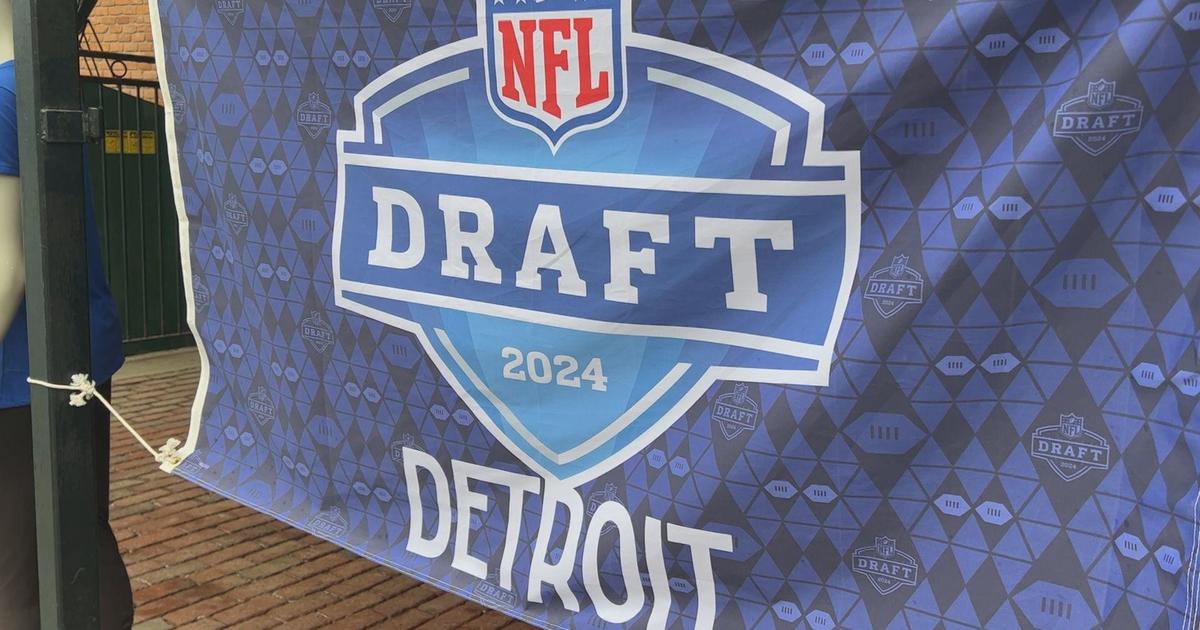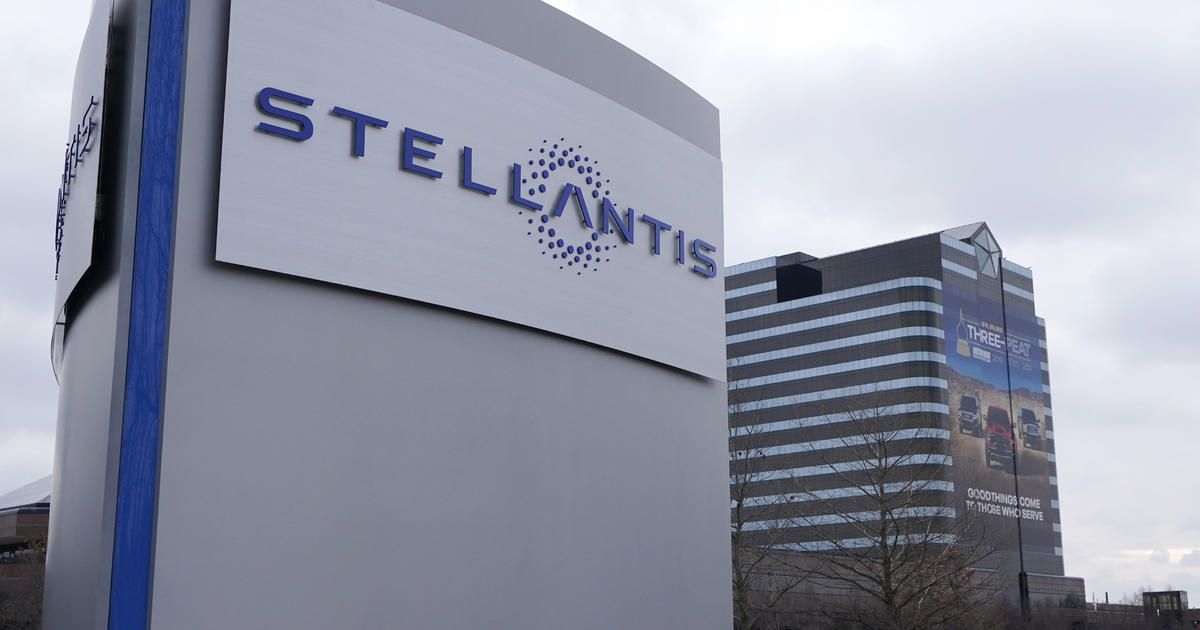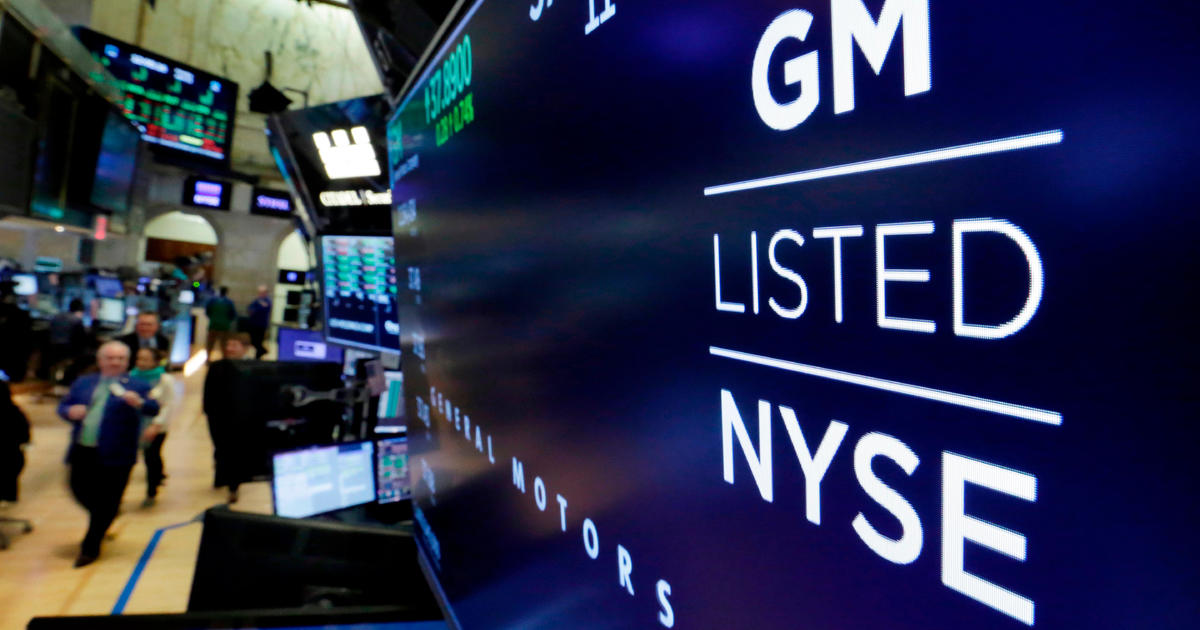Prospect Of Chinese Cars In US Still Remain Years Away
DETROIT (WWJ/AP) - Another Chinese automaker is showing vehicles this year at the auto show in Detroit, raising the perennial question about when these companies might sell in the United States.
The answer: Years from now, according to carmakers and industry observers alike.
Chinese manufacturers have announced plans over the past decade to export to the U.S. only to postpone them when faced with passing U.S. safety and emissions tests and building a dealer network. They also must overcome big hurdles in convincing U.S. car buyers that Chinese cars have the quality they demand. Still, Chinese companies remain interested in eventually selling in the prestigious - and potentially profitable - market.
"The fact that they're showing in Detroit doesn't really signify that they're coming soon," said Michael Robinet, managing director of IHS's automotive group. "They're showcasing that they're in the game, looking to expand beyond the home market."
Any Chinese-made cars sold in the U.S. likely would come in at the bottom segment of the market for different types of vehicles, Robinet said, where they would compete in the already lively market for used cars. Buyers would need to decide whether it's better to buy a used car made by General Motors or Toyota, for example, or a new car from a company that just arrived on American shores.
John Humphrey, senior vice president of global automotive operations at J.D. Power and Associates, said the quality of Chinese-built vehicles has improved, but they still generally lack the fit-and-finish that U.S. car buyers expect. And consumers' experience with waves of Chinese-made products that they encounter daily at stores would color their expectations about new cars.
"There's a general perception of goods coming out of China, being fair or unfair, that they are relatively sub-par," Humphrey said.
Chinese companies are in their first decade displaying vehicles at the North American International Auto Show. In 2006, a lone Geely Automobile sedan sitting outside the main exhibit halls marked the first time a Chinese automaker showed a car in Detroit. Last year, the Chinese companies skipped Detroit.
This year, Guangzhou Automobile is showing vehicles including a fuel-efficient small SUV that will be sold in China starting in April and parts of the Middle East, Africa, South America and eastern Europe in late 2015. The company known as GAC said 2017 is a possible year it would like to enter the U.S. market, but there is no concrete timetable.
"Before entering the North America market, we'll have a full understanding of the culture and consumption features of the North America auto market and release according models," Wu Song, GAC Group general manager, said in an email interview.
In 2007, Chrysler and Chery Automobile, China's biggest independent brand, announced plans to produce a Chinese-manufactured small car for export to the U.S. as soon as 2010 under Chrysler's Dodge brand. They ended the venture due to the global financial crisis.
Other companies pegged 2009 as a year where Chinese-made vehicles would be offered for sale in the U.S., but that year passed without any coming on the market.
Elsewhere, Chery and brands including Great Wall Motors export sedans, minivans and SUVs to Russia, Algeria, Chile and other developing markets. Still, Chinese automakers mostly sell at home, where the China Association of Automobile Manufacturers reports they had 41.2 percent of the market in 2014. They're being pressured in China by established global automakers, the same companies that dominate the U.S. market.
"They basically compete on price, and in the past several years have started to upgrade their design," said Yale Zhang, managing director of Automotive Foresight, a research firm in Shanghai.
Quality has improved but "it's not there yet to enter mature markets like Western Europe and the U.S.," Zhang said. In the U.S., challenges include setting up distribution in an unfamiliar market in which local laws prohibit direct sales to customers, Zhang said.
While Chinese-built vehicles have faced continued obstacles in the U.S., BYD Auto had success in its plans to put U.S.-built vehicles on the road. BYD, which stands for "Build Your Dreams," is a major battery maker and last year opened a California factory to produce plug-in electric buses.
Robinet said it's more difficult now than ever for automakers to make their first steps into a developed market such as the U.S. It's expensive to ship from China, he noted, and it took decades for South Korean automakers, for example, to fully establish themselves in the U.S.
"It's a massive undertaking and you can't get it wrong," said IHS's Robinet. "You might only have one chance."
Here's a look at some of China's biggest automakers:
-- Shanghai Automotive Industries Corp.: State-owned SAIC, China's biggest domestic automaker, exemplifies the successes and failures of the Communist Party's efforts to create competitive Chinese auto brands by decree. SAIC manufactures vehicles for General Motors Co. and Volkswagen AG under rules that require global automakers to work through state-owned local partners. The popularity of GM and VW, each of which sold more than 1 million vehicles in China last year, has brought SAIC a flood of revenue. But SAIC has struggled to fulfill the ruling party's orders to develop its own brands that appeal to consumers - its own-brand unit is losing money. "It's a pity SAIC can't just stick to making VWs and Chevys," said Bernstein Research in a report in October.
-- Dongfeng Motor Corp.: State-owned Dongfeng is the local assembler for Honda Motor Co., Nissan Motor Co. and France's PSA Peugeot Citroen and sells trucks and buses under its own brand. It owns 14 percent of Peugeot and the two companies pledged to cooperate in technology, research, manufacturing and overseas distribution. Like other state-owned automakers, Dongfeng benefits from government financial support and other favors. Dongfeng has been hurt lately by weakness in sales of Japanese brands as buyers opt for European competitors.
-- Geely Holding Co.: One of China's biggest independent auto brands, Geely burst onto the global stage in 2010 with its $1.8 billion acquisition of Sweden's Volvo Cars. Geely represents a new generation of industry growth after Beijing had little success trying to use shotgun marriages between global automakers and state companies to create appealing Chinese brands. At home, Geely was known for whimsically named brands including Gleagle and Englon and for uneven quality. Geely and other independents such as Chery Automobile Co. face intense pressure from bigger, richer global rivals that are eroding their market share. In May, the company announced it will focus on marketing a single Geely brand and phase out Gleagle and other names.
-- BYD Auto Co.: BYD - short for "Build Your Dreams" - is China's most advanced developer of electric cars. The company was founded in 2003 by engineer Wang Chuanfu, whose BYD Co. is one of the world's biggest producers of rechargeable batteries for mobile phones and other products. In 2008, Warren Buffett's Berkshire Hathaway Inc. paid $230 million for 10 percent of the parent BYD Co. Last year, BYD Auto opened a U.S. factory in Lancaster, California, to produce electric buses. BYD should be ideally placed to benefit from the Communist Party's ambitions to create a Chinese electric car industry but consumer interest is lackluster.
-- Great Wall Motors Ltd.: Great Wall became the Chinese industry's breakout success story in 2013 on the popularity of its SUVs but is struggling with falling sales. The company appointed the auto industry's first female chief executive, Wang Fengying, in 2003, a decade before Mary Barra became CEO of General Motors Co. Great Wall is one of China's biggest auto exporters, selling its Haval series of SUVs in Russia, South Africa and other developing markets, plus a few in Italy. But its share of its critical home market is under pressure from foreign and lower-priced Chinese brands. Industry analysts say Great Wall fails to invest enough in developing new technology and models.
TM and © Copyright 2015 CBS Radio Inc. and its relevant subsidiaries. CBS RADIO and EYE Logo TM and Copyright 2015 CBS Broadcasting Inc. Used under license. All Rights Reserved. This material may not be published, broadcast, rewritten, or redistributed. The Associated Press contributed to this report.



